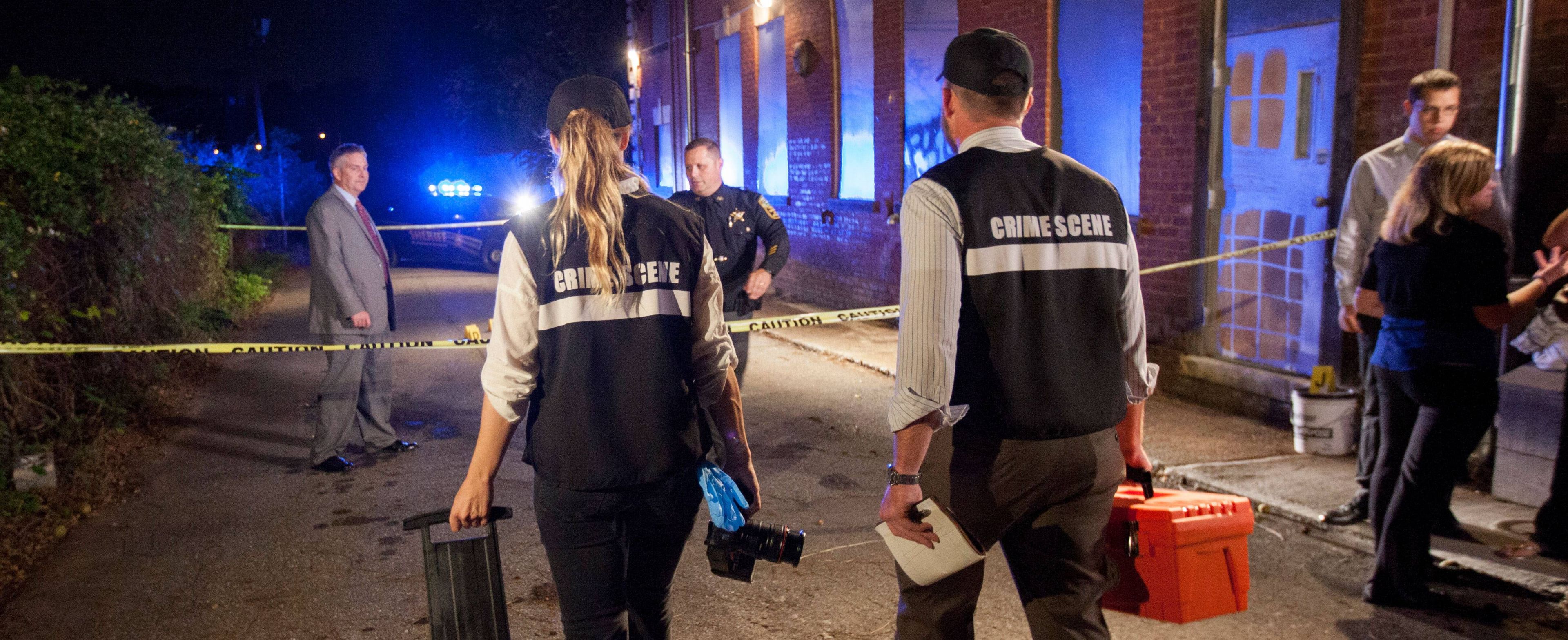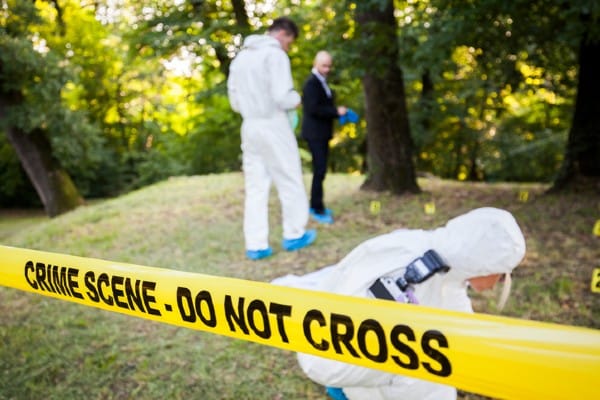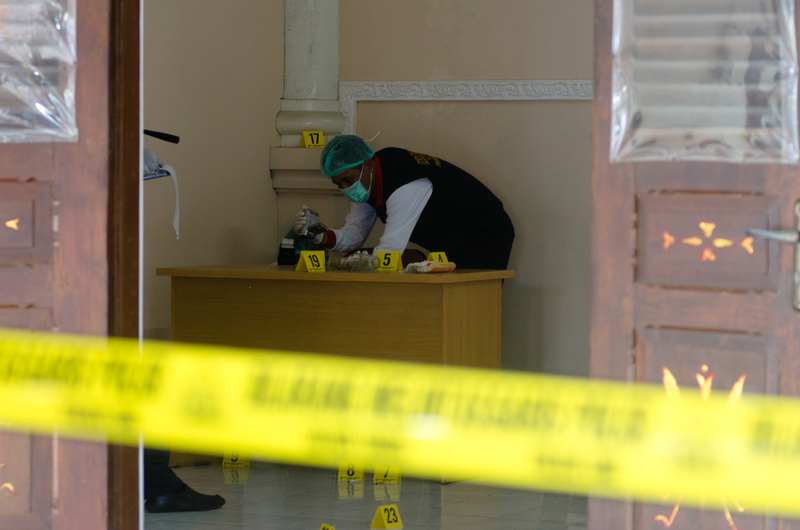Becoming a crime scene investigator (CSI) involves a combination of education, training, and experience. To enter this field, you will need to have a strong foundation in science, attention to detail, and excellent problem-solving skills. Here are the steps you can take to become a CSI:
Earn a college degree: Most employers require CSIs to have at least a bachelor's degree in a scientific field, such as forensic science, criminal justice, or biology. These programs typically include coursework in areas such as crime scene analysis, forensic chemistry, and forensic anthropology.
Get hands-on experience: Many college programs offer internships or hands-on training opportunities that can help you gain valuable experience in the field. You may also be able to find volunteer opportunities at local law enforcement agencies or forensic labs.
Obtain certification: Some states require CSIs to be certified, and earning a professional certification can also enhance your resume and increase your chances of finding a job. The International Association for Identification offers the Certified Crime Scene Investigator (CCSI) designation, which requires a combination of education and experience.
Gain on-the-job experience: After earning your degree and obtaining certification, you will need to gain experience working as a CSI. This may involve starting out as a crime scene technician or working as a forensic analyst before moving up to a full CSI role.
Continue your education: CSIs must stay up-to-date with the latest forensic technologies and techniques. This may involve attending conferences, workshops, and other professional development opportunities to stay current in your field.
Becoming a CSI is a challenging and rewarding career path that requires dedication, hard work, and a strong scientific background. However, with the right education and experience, you can become a vital member of a team that helps solve crimes and bring justice to victims.
Training to Learn How to Become a Crime Scene Investigator

Before following a crime scene investigator education program, research a variety of online publications. You can become a crime scene investigator if you have the appropriate diploma. The article Finding an entry level CSI job has suggestions for finding your first job as a Crime Scene Investigator. Crime scene investigators have a crucial role to play because the results of their work directly affect the criminal and legal processes that follow a crime. There are many renowned campus based and online schools that offer degrees in relevant fields. This means that those in these positions will soon be offering even more value once new developments, technology, and techniques became standard. According to the International Crime Scene Investigators Association ICSIA , 450 police departments hire full-time civilian CSIs no police officer powers and another 450 police departments hire full-time CSIs who are also sworn-in police officers.
How to Become a Crime Scene Investigator (CSI): Education and Training (2022)

You will learn about conducting post-mortems of dead bodies. Q:What does a crime scene technician do? A:To become a crime scene investigator it is important that you gave the relevant qualifications and skills. One place to start is the International Association for Identification IAI. Besides the laboratory component, online study of crime scene investigation is perhaps the best way to be able to study the field on your own time without foregoing your present job and income stream. The crime scene investigator's findings help other law enforcement agencies and prosecutors consider the offender's motives. Another unique feature of the career opportunities for a crime scene investigator is that many of them have already completed their Police Academy training.
Steps to Becoming a Crime Scene Investigator

Alternative Paths It may not be necessary for you to go to community college or a trade school to earn a degree in law enforcement. Our faculty includes attorneys, law enforcement professionals, and others who have had hands-on experience in the criminal justice system throughout the metropolitan area. It is recommended that students preparing for a CSI career should opt for a bachelor degree in forensic science, biology, or any relevant field. A:If you want to work as a crime scene investigator there are plenty of specialization areas you can choose from. This institute offers a Certified Criminal Investigator certification program.
How to Become a Crime Scene Investigator: 3 Ways to Become a CSI

This is much faster than many other careers in the same field. It is also important for a CSI to be able to convey complicated ideas in the courtroom clearly and concisely so that all parties involved understand the meaning of each piece of evidence. It should be one and a half pages at most although one page is ideal , as introductory material to the application form and the required attachments. Search online for accounts written by CSIs to learn the difference between the reality of the job versus how it is depicted in films and TV shows. Due to the unpredictable nature of criminal activity, crime scene investigators frequently put in long, irregular shifts with little advance warning. I am a consultant at Dell and we do have a lot of technical training, but I must comment that this one is one of the best trainings I have seen in several years.
How to Become A Crime Scene Investigator

An associate in forensic science takes two years to complete, a bachelor's takes four years to complete, and a master's takes 1-2 years to complete. Functions include lifting fingerprints, detecting the presence of toxic substances, undertaking bullet-comparison tests, and analyzing bloodstain patterns. To make the most out of your career, try and find ways to ensure that you are constantly educating yourself. A:CSIs at least possess a bachelor's degree. A CSI is a thorough crime scene examiner that can turn a chaotic crime scene into hard evidence. This course was amazing.
How to Become a Crime Scene Investigator

You may also have to submit to a polygraph test later on. Bureau of Labor Statistics provides salary figures for forensic science technicians which includes crime scene investigators. If they can't, the judge or jury may misinterpret important evidence. Most crime scene investigator jobs require a 4 year college degree. If you are worried that a previous incident might make it more difficult for you to get hired, think about contacting your neighborhood law enforcement or private organizations. At the end of the unit, I use four of the tested markers to create a Mystery Pen challenge.
How to Become a Crime Scene Investigator

It usually takes 4 years to earn a bachelor degree. It is also important that the crime scene investigator behaves in a disciplined and objective manner with citizens and media representatives. Although, it is possible to become a Crime Scene Investigator with another type of degree, such as law, criminology, biology, chemistry and so on. Expect your speed, endurance, and agility to be challenged. If you are unable or uninterested in pursuing a traditional degree through a two- or four-year school, consider alternate means.
How to become a crime scene investigator

The crime scene investigator must be an organized and disciplined person. The International Crime Scene Investigators Association ICSIA provides a CSI certification to professionals with at least two years of experience and 50 hours of crime scene processing coursework. He or she may work for the Federal Bureau of Investigation FBI , the state police department or the local sheriff's office. Candidates who do not have prior experience are typically evaluated on their academic performance and history. Those that have more education and training will be on the higher end of the spectrum.







